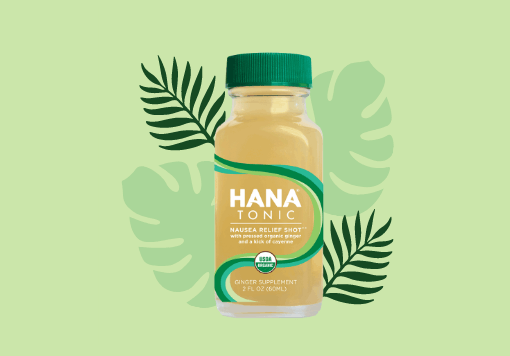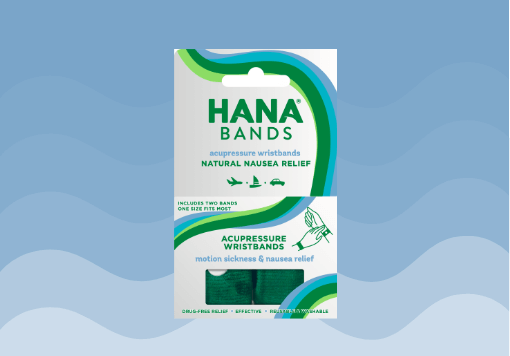
Few of us get to escape experiencing the uncomfortable effects of nausea. In fact,over 50% of adults in population studies report at least one episode of nausea in the last 12 months. When the discomfort of sickness hits, most of us want a quick solution to give us relief.
There is a wide range of causes of nausea. Vitamins can help give your body the boost it needs to fight off nausea, and a vitamin deficiency can even possibly be the cause of your sickness.
Here is all that you need to know about nausea and vitamins that can help you kick it fast.
What Causes Nausea and Vomiting
Although uncomfortable, nausea and vomiting serve a critical service in the body. They work as protective mechanisms and help the body get rid of a potentially toxic substance.
Nausea also sends a message to your brain that perhaps everything is not going well and encourages you to slow down.
The mechanisms behind nausea are complex and involvemultiple systems within the body, including psychological states, the central nervous system, autonomic nervous system, and hormones.
There are several places where nausea triggers in the body. Some of these triggers include:
- Emotions, like stress or fatigue.
- Sensations such as pain, smell, or taste.
- The stomach or intestines from an infection, obstruction, or constipation.
- The body from a hormonal imbalance or blood sugar swing.
- The inner ear, such as motion sickness or dizziness.
These general messages can come from a variety of causes. Some of the common triggers for nausea include:
- Pregnancy
- Emotional stress
- Motion sickness
- Flu
- Food poisoning
- Chemotherapy
- Intense pain
- Migraines
- Toxic overload
- Vitamin deficiency
- Overeating
Some causes of nausea are easy to pinpoint right away, such as morning sickness or food poisoning. Some chronic types of nausea, such as a vitamin deficiency, can be harder to identify and may be frustrating as you try to get rid of your sickness fast.
Even with a healthy lifestyle, it’s still possible that your body could be missing some essential nutrients. There are multiple instances where vitamins are beneficial to combat nausea. In a randomized trial, for example, women who took a multivitamin before pregnancy had less nausea when they were pregnant. Although to what extent is unknown, nutritional deficiency is an underlying factor in at least some nausea.
Some of the vitamins you might benefit from if you are fighting nausea and vomiting:

Vitamin B1
Otherwise known as thiamine, vitamin B1 works together with other B vitamins to be most effective. Thiamine isvital for the growth, development, and function of cells. The body alsouses thiamine to convert carbohydrates into energy.
Nausea and vomiting is one symptom of thiamine deficiency. Thiamine deficiency is uncommon, and most people have no problem getting their recommended daily amount. It’s usually only present in individuals who are chronic alcoholics or use certain medications.
However, thiamine deficiency during pregnancy is much more common. Women require an increased amount of it, but may not be getting enough with their morning sickness.A lack of thiamine has the unfortunate consequence of leading to even more nausea. Women who enter the ER for severe morning sickness aretreated with thiamine in an IV because of the higher likelihood of deficiency.
Some food sources of B1 include:
- Beef
- Liver
- Oranges
- Eggs
- Seeds
- Pork
Vitamin B6
Vitamin B6, also known as pyridoxine, is a powerhouse against nausea. It's involved in many different functions within the body.It participates in more than 100 enzyme reactions, which mostly have to do with protein metabolism.
Because it has such a significant impact on the body, it's not much of a surprise that it affects nausea.A study of 342 women over 11 months sought to measure the effectiveness of vitamin B6 over a placebo. Researchers found that it was an effective strategy for reducing the severity of morning sickness in women.
Although more research is needed, it does show a lot of promise for pregnant women who would like to help relieve their nausea without drugs.
Experts recommend thatwomen take 10mg three times a day to get relief from morning sickness.
Rich sources of vitamin B6 include:
- Fish
- Beef liver
- Potatoes
- Starchy vegetables
- Fruit (non-citrus)
- Poultry
Vitamin B9
Vitamin B9 is also known as folate or folic acid. Although used interchangeably, folate and folic acid aren't the same. Folate is naturally occurring in foods, while folic acid is the synthetic version. Folic acid is added to foods, such as bread, and put into prenatal vitamins. Some people don't handle the synthetic version as well, such aspeople with an MTHFR gene mutation. It might be helpful if you struggle to convert folic acid to seek out rich food sources of folate or find a whole-food folate supplement.
Vitamin B9 is a critical vitamin for proper development of a fetus.Some experts recommend that all women of childbearing age take folate because of how crucial it is to fetal development.
While most people know it just as a vitamin to take during pregnancy, folate serves a wide variety of uses in the body. It makesred and white blood cells in the bone marrow, is critical to the formation of DNA and helps with cell division.
Some studies have shown that folate can help curb medication-induced nausea. One offolate's many benefits is its ability to help with the detoxification process. This means that it can potentially be helpful for people that need help metabolizing medication that would otherwise make them feel sick.
Sources of folate include:
- Legumes
- Eggs
- Brussel sprouts
- Broccoli
- Beets
- Leafy greens
Vitamin B12
Vitamin B12 is a key nutrient for many functions in the body. Itmakes red blood cells, DNA, and nerves. It plays a role in everything frommood to energy levels to healthy skin to maintaining heart health.
Becausevitamin B12 is an essential key in digestive enzyme production, it is necessary to keep nausea at bay. It also helps to foster a healthy gut, which will also help keep you from experiencing any nausea.
While once considered rare, vitamin B12 deficiency is much higher than initially believed. A recentstudy from Tufts University revealed that 40% of the US population has at least a mild deficiency in vitamin B12. Vegetarians, vegans and people with gastrointestinal problems such as Chrohn’s, IBS, or those that lack of sufficient stomach acid, are at risk for developing a vitamin B12 deficiency, also called cobalamin deficiency.
Sources of vitamin B12 include:
- Liver
- Sardines
- Beef
- Fortified Cereals
- Fortified nutritional yeast
- Clams
- Trout

Magnesium
Magnesium is sometimes referred to as "The Magic Mineral" because it is so crucial to our bodies. It impacts over 300 enzymatic reactions within the body. Some of its benefits include:
When it comes to nausea, magnesium is a delicate balance. Too much or too little of it can cause nausea. However, in America, the "too much" doesn't seem to be a problem. Most Americans aren't getting enough magnesium. Almost half of the US population is not consuming enough magnesium daily. It’s even worse amongst seniors, where upwards of 70-80% aren’t getting the amount of magnesium that they need.
Not only can a magnesium deficiency cause nausea, but it is also closely linked with other nutrients in the body, including calcium, phosphorus, and vitamin D. All of these can affect the whole balance of your body. This is why magnesium can also potentially prevent morning sickness as well.
Magnesium can be taken externally as well as consumed. Epsom salt baths are one common way to get magnesium. Food sources include:
- Whole wheat
- Spinach
- Quinoa
- Nuts
- Dark Chocolate
- Avocado
- Edamame
How to Get Vitamins to Help Relieve Nausea

When you’re suffering from nausea or vomiting, you want relief as fast as you can get it. It might be tempting to run to the store to get all of the vitamins on this list in supplements and take as much as you can. However, you might want to weigh the benefits of supplements versus getting the nutrients in food form.
Under the direction of a doctor, taking nutritional supplements can help resolve deficiencies. Taking your vitamins in food form, though, can also be an effective way to get back to optimal health.
Whole foods are easier to digest and come with co-factors that can make them easier to absorb. For example,magnesium and vitamin D are very closely linked and foods can contain both of them in the right ratio. Improving one has been shown to improve the other. Likewise, many vitamins work best with other specific vitamins and minerals that are in your food.
Hana Tonic for Nausea
When it comes to the wide variety of food that it could potentially take to relieve nausea, though, it can get pretty overwhelming. Especially when you're not feeling well; the last thing you want to do is have some of the foods on the lists above (liver, anyone?)
Thankfully, there is an easier way to get valuable vitamins than whole food form to kick your sickness to the curb. Hana Tonic is full of the essential B-vitamins that will help get you back to health again in one easy shot.
Try Hana Tonic today and say goodbye to nausea!



